Today the Paris Climate Agreement comes into force. In some ways, this is the culmination of years—decades, even—of work by climate negotiators, who have long sought a global agreement that would have the strong support of all of the world’s largest emitters. And they got that at Paris: the United States and China, especially, were at the front of the charge in pushing the agreement across the finish line of the exhausting United Nations Framework Convention on Climate Change (UNFCCC) diplomatic process, whereas often they had been the main obstacles in the past.
Triumph for the climate community though it is, getting Paris in place is better understood as a beginning than an end in itself. Paris has the support of the whole world because it puts in place a flexible and open-ended system that revolves around countries’ self-commitments. These won’t be evaluated or enforced by any centralized global arbiter; instead, a softer reputational enforcement has to do the work, ideally creating a virtuous cycle of ambitious commitments, honestly reported progress to match, and further commitments following on those successes. Such reputational incentives work first and foremost in the international sphere.
But, much more obviously than in the case of binding treaties, the Paris Agreement’s loose structure makes its future largely a function of the domestic politics of the signatory nations. If politicians find they can gain domestic political advantage from scaling back their country’s climate mitigation ambitions, they may place these considerations above the potential costs of international disapproval. Often there are likely to be regional divides over the urgency of addressing climate change relative to other goals, especially promoting economic development, and so it will only be natural for domestic pressures from some quarters to resist ambitious climate action.
In a new paper, “Are the U.S. and China ready, willing, and able to achieve their Paris Agreement goals?,” I argue that in both the U.S. and China, national leaders’ enthusiastic support for the Paris Agreement is significantly complicated by widely dispersed domestic opposition to ambitious climate action. In the U.S., the Republican party’s consistent unwillingness to act on climate presents a significant obstacle to sustaining necessary political will over time. Even if Democrats keep control of the White House and push forward with administrative action on behalf of climate mitigation, Republican resistance at the state level will need to be confronted head on, with real political costs. In China, top-level support for aggressive climate action is unlikely to be shared by provincial officials, who may feel themselves politically unable to sacrifice any amount of economic growth on behalf of climate goals, and who will also face daunting technical challenges. In both countries, the divergence between the willingness to pay and the incidence of costs create thorny political problems that will hang over climate policy for many years to come.
For many people in the world of climate policy, who worked so hard to secure and legitimize the Paris Agreement, harping on the potential of domestic politics to disrupt Paris’ momentum—or ultimately render it ineffectual—no doubt feels rather unwelcome. But opposition, either by national political parties or important regional interests, is a fact that cannot be wished away. As I have argued before, achieving political sustainability for the legal instruments used to combat climate change may well be the most challenging part of climate policy. It therefore behooves all of us to think long and hard about how political forces are likely to operate in the world’s two leading emitters.
Read the full paper here.
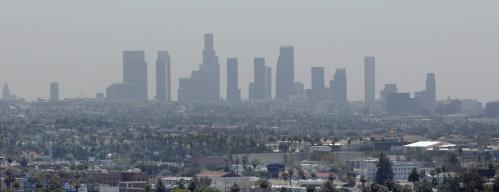
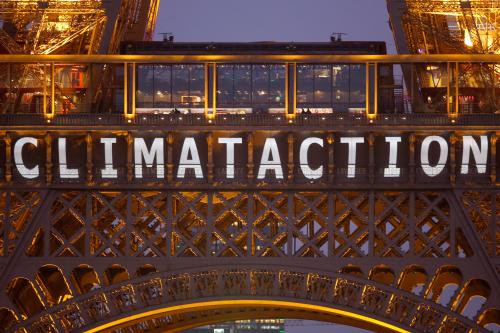
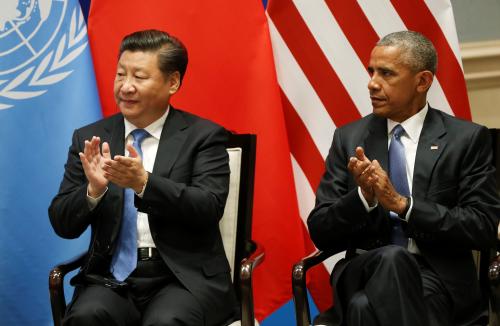
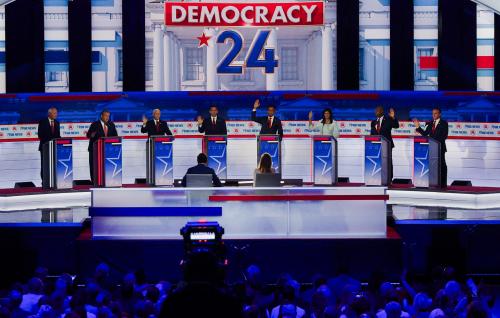
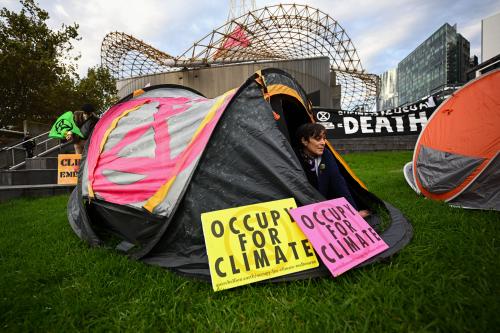
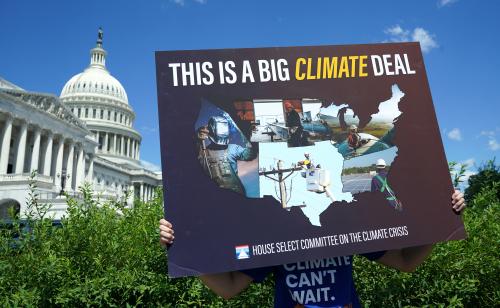
Commentary
The Paris climate agreement is in effect: Now will the world’s two biggest emitters follow through?
November 4, 2016